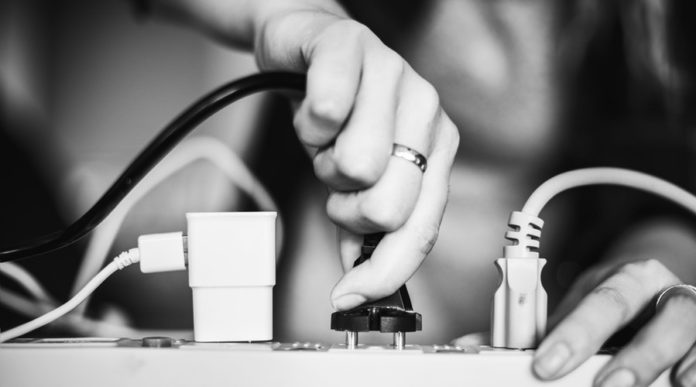An extension cord or a power extender is a flexible length of power cable with a plug on one end and one or more sockets on the other. At some point in your life, you will need an extension cord because of the unavailability of the electrical outlet where you need it. When you move into your new house, chances are you will need an extension cord.
With a variety of extension cords that are available on the market, it is difficult to understand which one to use. Many times people use the same extension cord for all purposes, which is not a safe practice for both the machine and the outlet.
To make sure your safety and to prevent any mishappenings, here are a few tips on how to choose an extension cord for your new house.
#1. Extension Cord Gauge and Length
Extension cords are available in different lengths, types, and sizes. While choosing an extension cord, you should consider the following two main factors.
- Wire gauge: The diameter or thickness of the wire inside the extension cord determines the current carrying capacity of the extension cord. It also determines the intensity of heat generated in the extension cord.
- Length: The length of the extension cord determines the amount of voltage drop. It also tells you the loss of voltage due to wire resistance.
The measurement of the diameter of copper wires inside the extension cord is in Gauge, also referred to as AWG (American Wire Gauge). The smaller the AWG, the thicker is the wire. You can see the AWG of the extension cord printed on the extension cord jacket. While replacing an old extension cord, look for the cord gauge and replace it with the same AWG rating cord. Remember that a higher AWG provides more resistance to the current flow making the wire hotter. Therefore, a higher gauge usually means a lesser current carrying capacity.
Similarly, the current rating of a wire depends on its length too. For example, a Voltage drop is a voltage loss through the entire circuit due to electrical resistance. Because of this reason, shorter extension cords have a higher capacity than the longer ones. The longer the extension cord, the higher is the voltage drop. Because of the voltage drop, you should use a short extension cord.
#2. Light-Duty Extension Cords
The higher the AWG, the thinner and compact the extension cord is. These small extension cords are light-duty extension cords. These are suitable for items that work on less power like fans, table lamps, alarm-clock, trimmers, and portable blowers. You should not use these light-duty extension cords for any heat-generating appliances such as irons and toasters, that need a high amount of electricity. They do not have any grounding and only have two plug prongs. For equipment of 12 amps or less like blowers, 50 feet long, 16-gauge light-duty cord is sufficient.
#3. Medium-Duty Extension Cords
Cords with the Gauge in the range of 10 to 14 AWG are medium-duty extension cords. These cords have a third wire for grounding and have three-prong plugs. You can choose these medium-duty extension cords for connecting your laptops, televisions, lawnmowers, and table saws. A 14-gauge medium-duty wire is suitable for such equipment. While using an extension cord outside look for ‘W’ on the cord jacket to make sure it’s suitable for outdoor use.
#4. Heavy-Duty Extension Cords
Heavy-duty extension cords are suitable for an appliance that requires 10-15 amps of power or more. These cords are always grounded i.e., they have a third wire and plug prong for grounding. Their plugs have three slots suitable for grounded heavy-duty extension cords. Choose these cords for your refrigerators, chain saws, air compressors, circular saws, etc. Use a cable that can withstand high loads like 10 gauge extension cord. It is a heavy-duty extension cord that has an amp rating of 30 over a length of 50ft.
#5. Built-In GFCI Protection
If you are looking for extension cords for places that encounter moisture like a basement, then make sure that the cord is a GFCI (ground-fault circuit-interrupter) type. You can also use a GFCI-protected outlet to plug-in your extension cord. This will ensure that there are no shock hazards.
6. Use an Extension Cord with a surge protector
Use a surge protector while using extension cords. This will prevent the flow of excess power by grounding it. Even the slightest surge can damage sensitive electronics. So, plug them into surge protectors or use an extension cord that has built-in surge protection. For factory uses, the extension cord must be a shielded wire to avoid the electromagnetic interference (EMI) on the factory floor. Shielding reduces electromagnetic radiation and electrical noise, thus, producing less impact on signals.
Conclusion:
The above tips will help you choose the right extension cord for your new house. After purchasing any appliance, read the instructions and precautions to follow before using it. Some devices have clear guidelines of never to use extension cords. Therefore, next time, when you are shifting homes, do not forget to keep an account of all the gadgets and their amperages to decide the right extension cords.






















